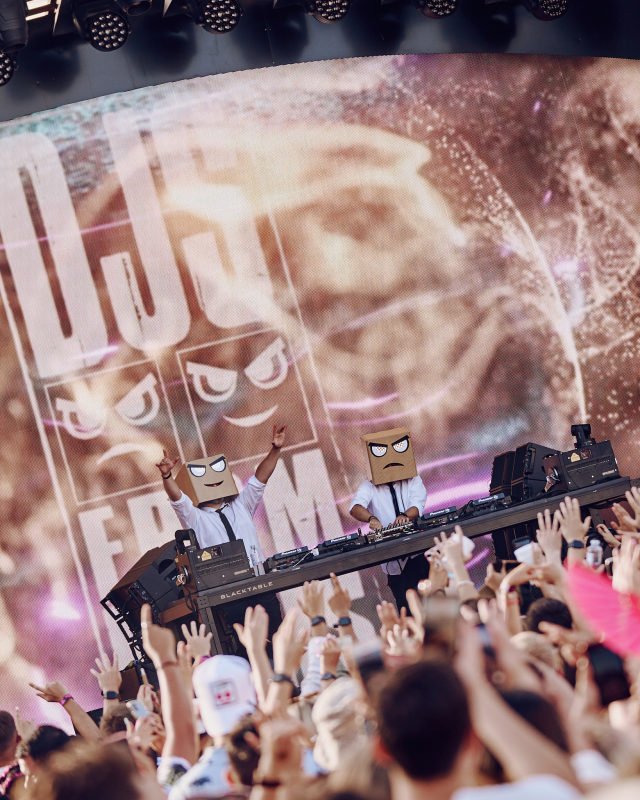This year, UNTOLD Festival hosts seven stages, multiple music spots, unique activities, and games throughout 235,000 square meters. 200 artists and over 400,000 fans from all over the world are joining the 4 days and nights of the magical realm.
The first day of the festival, Thursday, August 7, brings artists from electronic and pop music to the mainstage: Don Diablo Exclusive Set, Tiësto Extended Set, Topic, Tujamo, Rag’n’Bone Man, and Irina Rimes. The Galaxy stage, UNTOLD’s house and techno home, will host Black Coffee, Nusha, Arapu B2B Priku, and more. The Daydreaming stage welcomes Ben Böhmer, Parra for Cuva, Marten Lou, Armen Miran, and others on the festival’s first day.
The second day of the festival locks in Armin van Buuren with a unique show, DJ Bliss, and a surprise act on the mainstage. The live act of the night is Post Malone, one of the most influential figures in contemporary music and a global superstar, who will perform in Romania for the very first time at UNTOLD’s anniversary edition. Dom Dolla and ARTBAT will smash the Galaxy stage, while the Daydreaming stage will vibe with Sébastien Léger, Mano Le Tough, Rampue Live, Caleesi & Kreis, and others.
Saturday booms with Metro Boomin on the mainstage. The mastermind behind the sound of hip-hop and trap in the past decade will deliver an exclusive performance, marking his only festival show in Europe this year at UNTOLD X. The festival’s third day features DJs and producers from various genres: Alok, Alan Walker, Steve Angello, and Hugel on the mainstage. The Galaxy stage will showcase Green Velvet, Sara Bluma, as well as a unique set from A:RPI:R and other local DJs and producers. The Daydreaming stage will enjoy the likes of Jan Blomqvist, Röyksopp, Hraach Live, and more.
The last day and night of the festival will be celebrated in style with Anyma, Martin Garrix with UNTOLD Special Show, Fisher, Becky Hill, Cancelled Show (Kris Fade’s concept), INNA, and other local acts on the mainstage. UNTOLD X has Adriatique on the Galaxy stage and the legend Marco Carola, Mahony, and Sit. The Daydreaming stage will feature Shimza, Pachanga Boys, Bob Moses, Anthony Middleton (Audiofly), PAAX, and more.
From August 7 to 10, UNTOLD opens daily at 4 PM and closes after sunrise, at 7-8 AM. Tickets are available on untold.com, including backstage access and tours to the festival. Fans who want to discover UNTOLD differently can choose the Discovery Tour, a captivating 60-minute journey behind the scenes of the festival, and the Insider Tour, an extended 100-minute experience to discover special areas of the festival grounds.
The post UNTOLD Festival Adds ARTBAT, Topic, Tujamo, And More For 10th Anniversary appeared first on EDM House Network.
- 0 comments
- 12 views





